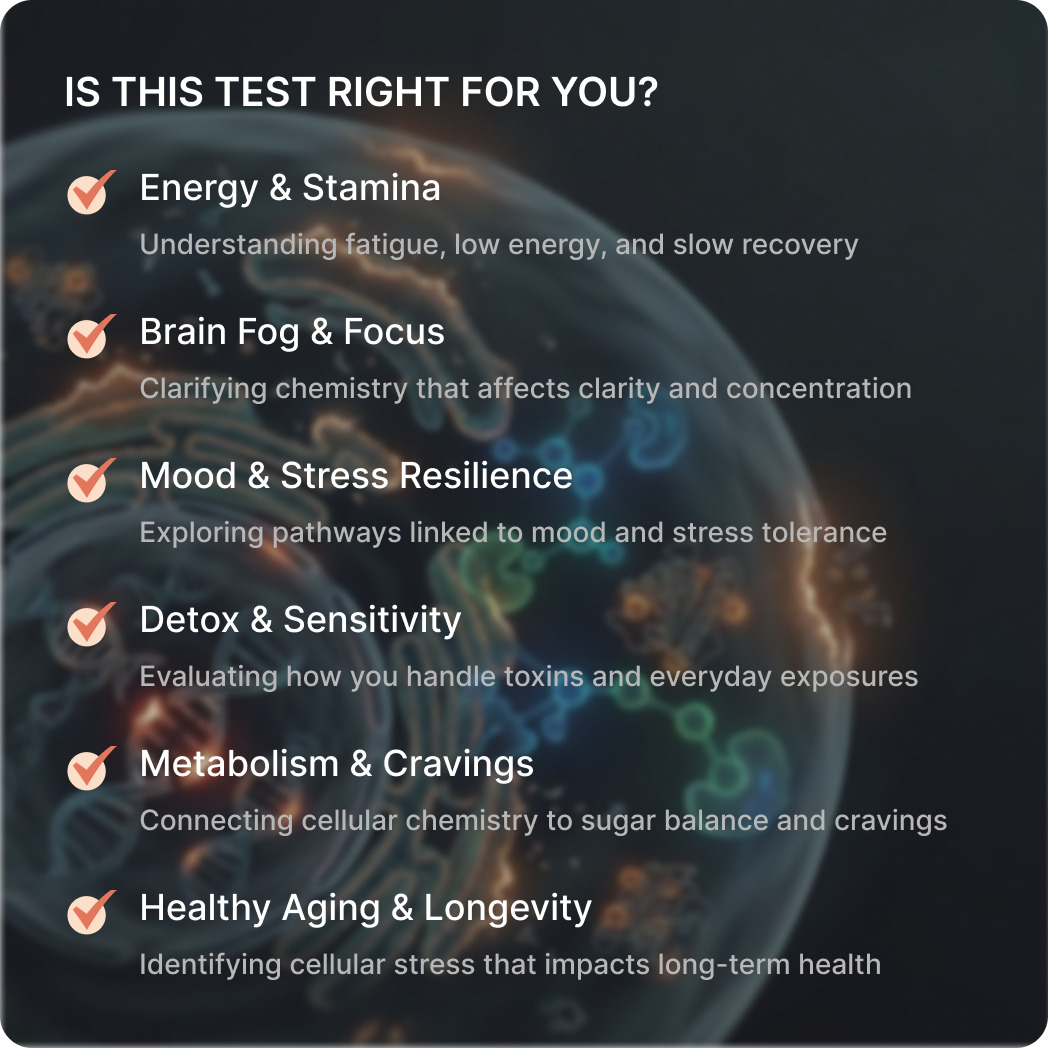Cellular Zoomer is a comprehensive urine and saliva test that maps how your cells produce energy, manage stress, and sustain metabolic balance. It unites advanced organic acid markers, oxidative damage signals, and antioxidant genetics in a single, clear view, helping you and your provider design more precise strategies for resilience, vitality, and long-term wellness.
Oxidative stress occurs when your body can’t keep up with free radical damage. Over time, this imbalance can contribute to fatigue, inflammation, slower recovery, and visible signs of aging.
Precision Testing
Measures lipid, DNA/RNA, and protein oxidation along with nitrative stress to show how much cellular strain you’re carrying.
Personalized Solutions
Targeted antioxidants and supportive habits to lower oxidative load and strengthen cellular resilience.














.png?width=835&height=831&name=Screenshot%202025-09-05%20at%2016.11.51%201%20(1).png)
.png?width=835&height=828&name=Screenshot%202025-09-05%20at%2016.11.51%201%20(2).png)
.png?width=834&height=828&name=Screenshot%202025-09-05%20at%2016.11.51%201%20(3).png)
.png?width=835&height=828&name=Screenshot%202025-09-05%20at%2016.11.51%201%20(4).png)


.png?width=457&height=457&name=Step%20Images%20(1).png)


.png?width=900&height=735&name=image%20859%20(1).png)








